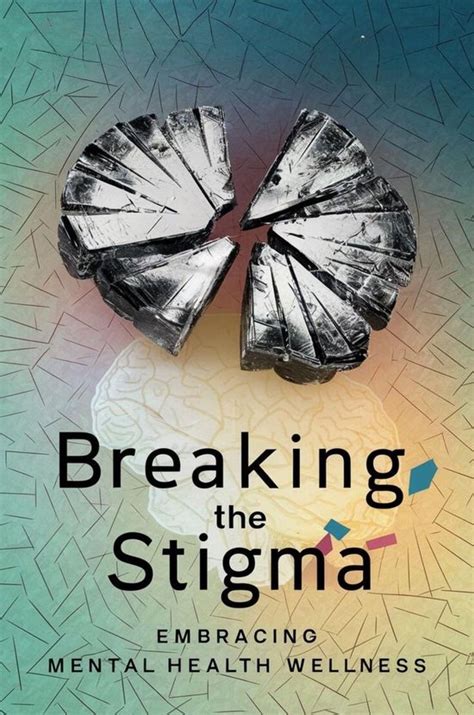Introduction

Mental health, once shrouded in shadows of shame and misunderstanding, has taken center stage in modern society. The stigma surrounding it has hindered countless individuals from seeking the support and care they desperately need. It’s time to shatter the barriers and embrace a world where mental well-being is not a sign of weakness but a fundamental aspect of human health.
The Prevalence of Mental Health Issues
According to the World Health Organization (WHO), nearly 1 billion people worldwide currently suffer from mental health disorders. This staggering figure represents an estimated 13% of the global population. In the United States alone, the National Survey of Drug Use and Health (NSDUH) estimates that over 20% of adults experience a mental disorder each year.
The Impact of Stigma
The stigma associated with mental health can have devastating consequences for individuals and society as a whole. It leads to:
- Reluctance to Seek Help: People fear judgment, discrimination, and social isolation, preventing them from accessing the care they need.
- Self-Stigma and Shame: Individuals may internalize the stigma, leading to feelings of low self-esteem, guilt, and withdrawal.
- Discrimination in Employment, Housing, and Education: Employers, landlords, and educators may hold negative stereotypes and prejudices against people with mental health conditions.
- Physical Health Risks: Mental health disorders can increase the risk of chronic physical illnesses, such as heart disease, diabetes, and stroke.
The Need for a Paradigm Shift
To address the mental health crisis, we must challenge the stigma that perpetuates it. This requires a collective effort from individuals, communities, and societies.
Individual Actions:
- Educate Yourself: Understand the facts about mental health and share them with others.
- Be Supportive: Offer empathy and support to friends, family members, and colleagues who are struggling with mental health issues. Encourage them to seek help.
- Challenge Stigma: Speak out against discriminatory language and attitudes.
Community Initiatives:
- Local Support Groups: Facilitate peer-to-peer support networks where individuals can share their experiences and connect with others.
- Advocacy Campaigns: Raise awareness about mental health and the importance of access to care.
- Mental Health Education in Schools: Integrate mental health literacy into school curricula to promote understanding and prevent stigma from a young age.
Societal Changes:
- Policy Reforms: Implement laws and policies that protect the rights of people with mental health conditions, ensure access to affordable care, and prohibit discrimination.
- Media Representation: Promote accurate and respectful portrayals of mental health in the media to challenge stereotypes.
- Investment in Research: Fund research to improve understanding of mental health disorders, develop effective treatments, and advance prevention strategies.
Benefits of Sacking the Stigma
Shattering the stigma surrounding mental health has myriad benefits for individuals and society:
- Improved Health Outcomes: Access to care and support leads to better mental health outcomes and reduces the risk of developing severe disorders.
- Increased Productivity: Employees with good mental health are more engaged, productive, and less likely to miss work.
- Stronger Communities: Supportive communities that embrace mental well-being foster stronger connections and reduce social isolation.
- Reduced Healthcare Costs: Early intervention and treatment can prevent more costly and severe mental health problems in the future.
- A More Just and Equitable Society: A society that values mental health is more inclusive, compassionate, and just for all its members.
Conclusion
The time has come to sack the stigma that has suffocated mental health for too long. By embracing a world where mental well-being is prioritized, we can unlock human potential, foster thriving communities, and create a more just and equitable society. Let us all play our part in breaking the barriers of stigma and supporting the mental health of ourselves and others.
Key Pain Points
- Lack of access to affordable care
- Discrimination and prejudice
- Reluctance to seek help due to fear of stigma
- Internalized shame and low self-esteem
Motivations
- Improved health outcomes
- Increased productivity
- Stronger communities
- Reduced healthcare costs
- A more just and equitable society
New Word for Generating Ideas
“Psychnovation”: A creative approach to developing innovative solutions for addressing mental health challenges.
Useful Tables
Table 1: Prevalence of Mental Health Disorders
| Region | Adults with Mental Disorders |
|---|---|
| Global | 970 million |
| United States | 20.4% |
| Europe | 25% |
| Asia | 17.5% |
| Africa | 13.5% |
Table 2: Impact of Stigma on Mental Health
| Consequence | Description |
|---|---|
| Reluctance to Seek Help | Fear of judgment, discrimination, and social isolation |
| Self-Stigma and Shame | Negative self-perception and feelings of inferiority |
| Discrimination in Employment, Housing, and Education | Barriers to opportunities and support |
| Physical Health Risks | Increased risk of chronic diseases due to stress and other factors |
Table 3: Benefits of Sacking the Stigma
| Benefit | Description |
|---|---|
| Improved Health Outcomes | Better mental health and reduced risk of severe disorders |
| Increased Productivity | Engaged and productive employees with reduced absenteeism |
| Stronger Communities | Supportive and inclusive environments that foster well-being |
| Reduced Healthcare Costs | Early intervention and treatment prevent costly future healthcare expenses |
| A More Just and Equitable Society | Inclusivity and compassion for all members regardless of mental health status |
Table 4: Actions to Sack the Stigma
| Individual | Community | Societal |
|---|---|---|
| Educate Yourself | Local Support Groups | Policy Reforms |
| Be Supportive | Advocacy Campaigns | Media Representation |
| Challenge Stigma | Mental Health Education in Schools | Investment in Research |
